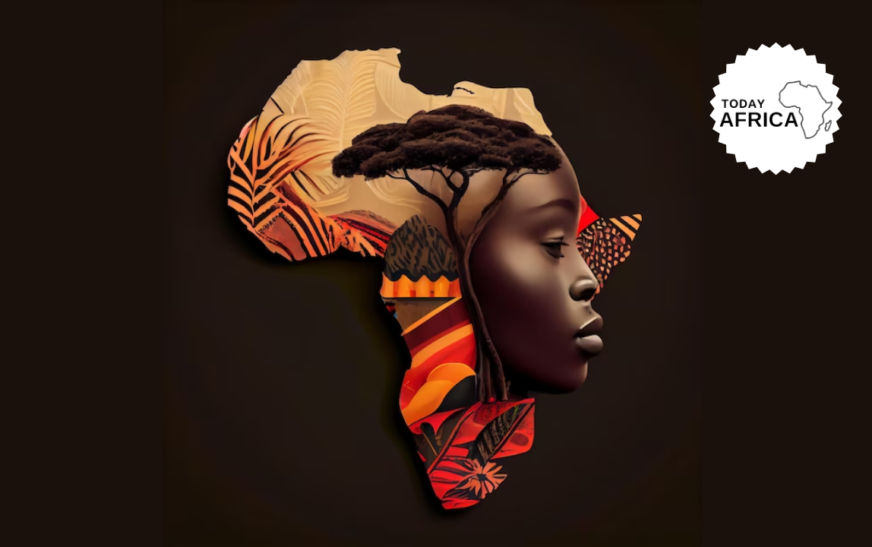Africa’s tech industry is booming in 2025, with five countries standing out for their rapid growth, investment, and innovation: Kenya, Nigeria, South Africa, Egypt, and Rwanda.
These nations are driving advancements in fintech, AI, agritech, and more, while attracting billions in funding. Here’s a quick breakdown:
| Country | H1 2025 Funding | Key Sectors | Major Hubs | Notable Policies |
|---|---|---|---|---|
| Kenya | $227M | Fintech, agritech, healthtech | Nairobi | Startup Bill, AI Strategy |
| Nigeria | $176M | Fintech, e-commerce, healthtech | Lagos | Nigeria Startup Act |
| South Africa | $344M | AI, fintech, healthtech | Cape Town, Johannesburg | Digital Economy Master Plan |
| Egypt | $339M | Fintech, e-commerce, proptech | Cairo | Free zones, AI training |
| Rwanda | $150M (2024) | Fintech, agritech, healthtech | Kigali | Startup Act, Kigali Innovation City |
Africa’s youthful population, mobile-first solutions, and supportive policies are reshaping industries and attracting global attention.
These 5 African countries are leading the tech boom in 2025 are creating solutions that address local challenges while scaling globally.
1. Kenya
Kenya has rightfully earned the nickname “Silicon Savannah”, thanks to its inventive solutions, government initiatives, and strong financial backing.
The tech sector contributes 1.1% to the country’s GDP, with projections suggesting the digital economy could account for up to 9.24% of GDP by 2025.
These promising numbers are backed by decisive government policies and a thriving startup ecosystem.
Startup ecosystem strength
Kenyan startups have been making waves, securing $638 million in funding in 2024 – representing nearly 29% of the continent’s total.
In the first half of 2025 alone, they raised approximately $130 million, marking a 12% year-over-year increase. Some standout success stories include d.light, which raised $176 million in July 2024.
Apollo Agriculture followed with a $40 million Series B round, while BuuPass attracted strategic investment from Yango Ventures after reaching $100 million in gross merchandise value.
These achievements highlight the strength and potential of Kenya’s tech landscape.
Government policies and support for innovation
The Kenyan government has taken significant steps to nurture its tech ecosystem. In July 2024, the National Assembly passed the Startup Bill of 2022, offering tax breaks, easier access to credit, and essential resources for startups.
Kenya also released its first National Artificial Intelligence Strategy (2025–2030) in early 2025, aiming to establish itself as a leader in AI research and commercialization.
Infrastructure and training programs further bolster the ecosystem. Developments like Nairobi’s Tatu City and Microsoft’s ambitious plan to train 1 million people in AI and cybersecurity by 2027 demonstrate the country’s commitment to fostering growth.
2. Nigeria
Nigeria has solidified its position as Africa’s largest startup market, supported by a massive population of 236.7 million people and a median age of just 18 years.
This vibrant, youthful demographic – highly connected and digitally savvy – offers a huge market that continues to draw entrepreneurs and investors from across the globe.
A thriving startup ecosystem
Lagos, Nigeria’s bustling economic hub, is home to nearly 2,000 tech startups, with the ecosystem valued at $9.8 billion. This contributes to Nigeria’s overall economy, which is worth approximately $259 billion, making it the top-ranked ecosystem in Western Africa.
In 2024 alone, Nigerian startups secured over $400 million in funding, representing 15% of all startup funding across Africa and contributing 15% to the nation’s GDP. Globally, Nigeria’s startup ecosystem is ranked #66.
A standout moment came in October 2024 when Moniepoint Inc. achieved unicorn status, becoming Africa’s eighth unicorn after securing $110 million in Series C funding.
This milestone underscores the strength and maturity of Nigeria’s fintech sector, which remains a magnet for investment. The ecosystem’s growth is further supported by well-crafted government policies.
See Also: What Investors Look for in African Startups
Government policies fueling innovation
The Nigeria Startup Act of 2022 has played a pivotal role in nurturing the digital economy by introducing incentives and programs tailored for startups.
Key initiatives include the Youth Entrepreneurship Fund, offering grants of up to ₦5 million for youth-led businesses, and the Bank of Industry’s low-interest loans of up to ₦50 million for startups and small enterprises.
As of April 2024, the National Information Technology Development Agency reported impressive figures on the Nigeria Startup Portal: 12,948 registered startups, 912 venture capitalists, 1,735 angel investors, and 925 accelerators and incubators.
These policies have catalyzed advancements in various tech sectors, making Nigeria a fertile ground for innovation.

3. South Africa
South Africa has become a major player in AI and fintech, with Cape Town leading the charge as a hub for over 450 tech companies driving digital advancements across Africa. The country’s startup ecosystem is thriving, showcasing impressive growth in various sectors.
Startup ecosystem strength
South Africa’s fintech sector is booming, with 30% of businesses focusing on payments and remittances. Several startups have achieved impressive milestones:
- Paymenow: Ranked sixth in Financial Times Africa’s Fastest-Growing Companies 2025, the company saw a staggering 3,756.1% growth, with a compound annual growth rate (CAGR) of 237.8% from 2020 to 2023. Revenue jumped from $0.14 million in 2020 to $4.86 million in 2023, while the team grew from just 7 employees to 38.
- TymeBank: Placed 29th on the same list, TymeBank’s revenue soared from $10.67 million in 2020 to $67.70 million by 2023, a 610.9% increase. Its workforce expanded from 350 employees in 2023 to 602 by 2025.
- Yoco: A leader in the payments sector, Yoco supports over 200,000 small businesses and processes more than $1 billion in annual card payments.
- Omnisient: The company experienced a 604.9% revenue increase, growing from $0.32 million in 2020 to $2.00 million in 2023.
Government policies and support for innovation
The South African government is heavily invested in growing the digital economy.
Through initiatives like the Digital Economy Master Plan (DEMP) and the SA Connect Initiative (2023–2026), the goal is to connect over 42,000 government buildings, 5 million households, and 32,000 community Wi-Fi hotspots by 2026.
This includes linking 18,520 schools and 5,731 healthcare facilities.
Corporate investors have added $80 million to the South Africa SME Fund, while the government provides incentives such as a 15% reduced corporate tax rate in Special Economic Zones and a 150% R&D cost claim for qualifying companies.
These strategies aim to increase the digital economy’s GDP contribution from 8–10% in 2020 to 15–20% by 2025, with annual growth projected at 10–15%.
Read Also: 8 African Startups that Raised Series A in H1 2025
4. Egypt
With its prime location and a young, ambitious population, Egypt has positioned itself as North Africa’s leading tech ecosystem as of May 2025. This thriving environment is setting the stage for a wave of entrepreneurial activity and technological advancement.
Startup ecosystem strength
Egypt’s startup ecosystem reached new heights in May 2025, highlighted by Nawy‘s impressive $75 million funding round.
This proptech company, focused on simplifying home-buying in gated communities, played a pivotal role in solidifying Egypt’s regional leadership.
Alongside Nawy, other startups collectively raised $50 million during the same period, further showcasing the ecosystem’s upward trajectory.
The fintech sector has been especially active, growing 5.5 times in the last five years. Key players are driving this momentum. For example, Sahl, which launched in 2020, now serves over 12 million customers and 15 million households.
It secured $6 million in Series A and seed funding by June 2024. Khazna raised $16 million in pre-Series B funding in February 2025 to pursue a digital banking license and expand into Saudi Arabia.
Meanwhile, Bokra achieved an operating license from Egypt’s Financial Regulatory Authority in March 2025, just two years after its inception.
Globally ranked #65 and holding the top spot in Northern Africa, Egypt’s startup ecosystem is home to standout companies like Paymob, which is driving digital payments and financial inclusion across the region.
Another notable player is MNT-Halan, Egypt’s only unicorn, focused on improving financial access for underserved populations.
Government policies and support for innovation
The Egyptian government has introduced several initiatives to sustain this growth.
Hossam Heiba, CEO of the General Authority for Investment and Free Zones (GAFI), highlighted one such effort: “Egypt is opening its free zones to export-focused service startups for the first time… These zones are offering full customs and tax exemptions… Basically, they are a lifeline for startups in software exports and AI”.
GAFI has allocated 9,000 m² (97,000 ft²) of space within these zones for startup headquarters, offering tax and customs exemptions to eligible companies.
In addition, the Ministry of Communications and Information Technology has significantly invested in training, enabling over 400,000 Egyptians to acquire skills in programming, digital marketing, and AI.
Financial backing is also robust. The MSME Law 152/2020 provides annual support for small and medium enterprises, while the “Alliance and Development” initiative has funneled nearly $19.8 million into regional alliances.
Egypt’s AI strategy for 2025–30 sets ambitious goals, including training 30,000 AI professionals and doubling AI-related publications to 6,000 annually by 2030.
5. Rwanda
Rwanda is making waves in the tech world, carving out its space as a fast-emerging tech hub in Africa.
With focused government initiatives and a dynamic startup environment, this East African nation is challenging the dominance of Africa’s “Big Four” tech hubs and positioning itself as a global contender.
See Also: 8 Ways African Women Entrepreneurs Are Accessing Global Funding
Startup ecosystem strength
Rwanda’s startup scene has been on a remarkable growth trajectory. With over 55 funded companies and 80 investment deals contributing to a funding pool surpassing $1 billion, the ecosystem has captured the attention of investors worldwide.
Notably, the largest single funding round reached an impressive $330 million, signaling robust confidence in the country’s tech potential.
The momentum surged in 2024 when Rwandan startups secured $150 million in funding – a 75% jump from the previous year. This surge translated into real-world impact, creating more than 10,000 jobs in the same year.
Fintech leads the charge, with $60 million raised in 2024 alone.
Companies like Mobicash Rwanda and Zedya are making strides with mobile payments and microcredit services for small businesses and farmers.
Emerging players, such as PayRwanda and SmartFinance Rwanda, are also gaining traction with solutions for cross-border payments and digital savings aimed at women and youth.
Agritech is another star performer, pulling in $50 million in funding in 2024. AgriGo Rwanda connects farmers to markets and affordable inputs, while GreenHarvest Solutions focuses on climate-resilient crops.
Innovators like SoilSense Rwanda, which uses AI for soil health monitoring, and IrrigaTech RW, specializing in cost-effective irrigation systems, are also making waves in this space.

Government policies and support for innovation
The Rwandan government has placed digital transformation at the heart of its economic strategy. In the first quarter of 2025, the ICT sector grew by 19%, contributing 0.7% to GDP growth.
Officials predict that AI alone could account for up to 6% of the country’s GDP in the near future.
ICT Minister Paula Ingabire underscored the nation’s ambitions: “Our goal is to position Rwanda as a continental leader in innovation-driven technology. AI is the key to tomorrow’s economy. We have the will, the vision, and the partners”.
Key initiatives include the Startup Act, which simplifies business registration and improves access to funding.
Kigali Innovation City, a $300 million project, stands as a testament to Rwanda’s commitment to fostering a thriving tech ecosystem.
Designed to house universities, office spaces, and startup incubators, this initiative is expected to create 50,000 jobs and generate $150 million in economic impact.
The government has also integrated data literacy into education and adopted innovative solutions like robotic passenger screening at Kigali International Airport during the COVID-19 pandemic.
With 95% 4G coverage across the country, Rwanda has laid the groundwork for a robust digital infrastructure.
Read Also: Grant vs Loan: How to Decide for Your Small Business in Africa
Conclusion
In 2025, Kenya, Nigeria, South Africa, Egypt, and Rwanda are not just participating in Africa’s startup revolution—they are leading it.
Each country brings a unique combination of policy support, investor confidence, and sector-specific innovation that is redefining how the continent approaches technology and entrepreneurship.
From Kenya’s Silicon Savannah and Nigeria’s fintech dominance to South Africa’s AI leadership, Egypt’s e-commerce and proptech expansion, and Rwanda’s rapid ascent as a tech hub, these ecosystems are solving real-world problems while positioning themselves for global relevance.
Africa’s youthful population, mobile-first adoption, and commitment to digital transformation are creating fertile ground for world-class startups.
As these five nations continue to scale their innovations beyond their borders, they are not only shaping Africa’s economic future but also proving that the next wave of global tech disruption could very well come from the continent itself.
For investors, innovators, and policymakers, now is the time to pay attention. Africa’s startup revolution is here—and it’s moving fast.
FAQs
Which sector is growing the fastest in Africa’s startup ecosystem in 2025?
Fintech remains the fastest-growing sector, driving financial inclusion and attracting the largest share of investment across all five leading countries.
Is Africa’s startup growth attracting global investors?
Yes. International venture capital firms, global tech companies, and development agencies are increasingly funding African startups, with billions of dollars invested in just the first half of 2025.
How do government policies help startups in these countries?
Supportive measures include tax incentives, startup acts, AI strategies, free zones, grants, low-interest loans, and digital economy master plans, all designed to reduce barriers and boost innovation.
What is the future outlook for Africa’s startup ecosystem?
With a young, tech-savvy population, expanding internet access, and growing investor confidence, Africa’s startup ecosystem is expected to continue scaling locally and globally over the next decade.
Leave a comment and follow us on social media for more tips:
- Facebook: Today Africa
- Instagram: Today Africa
- Twitter: Today Africa
- LinkedIn: Today Africa
- YouTube: Today Africa Studio
















